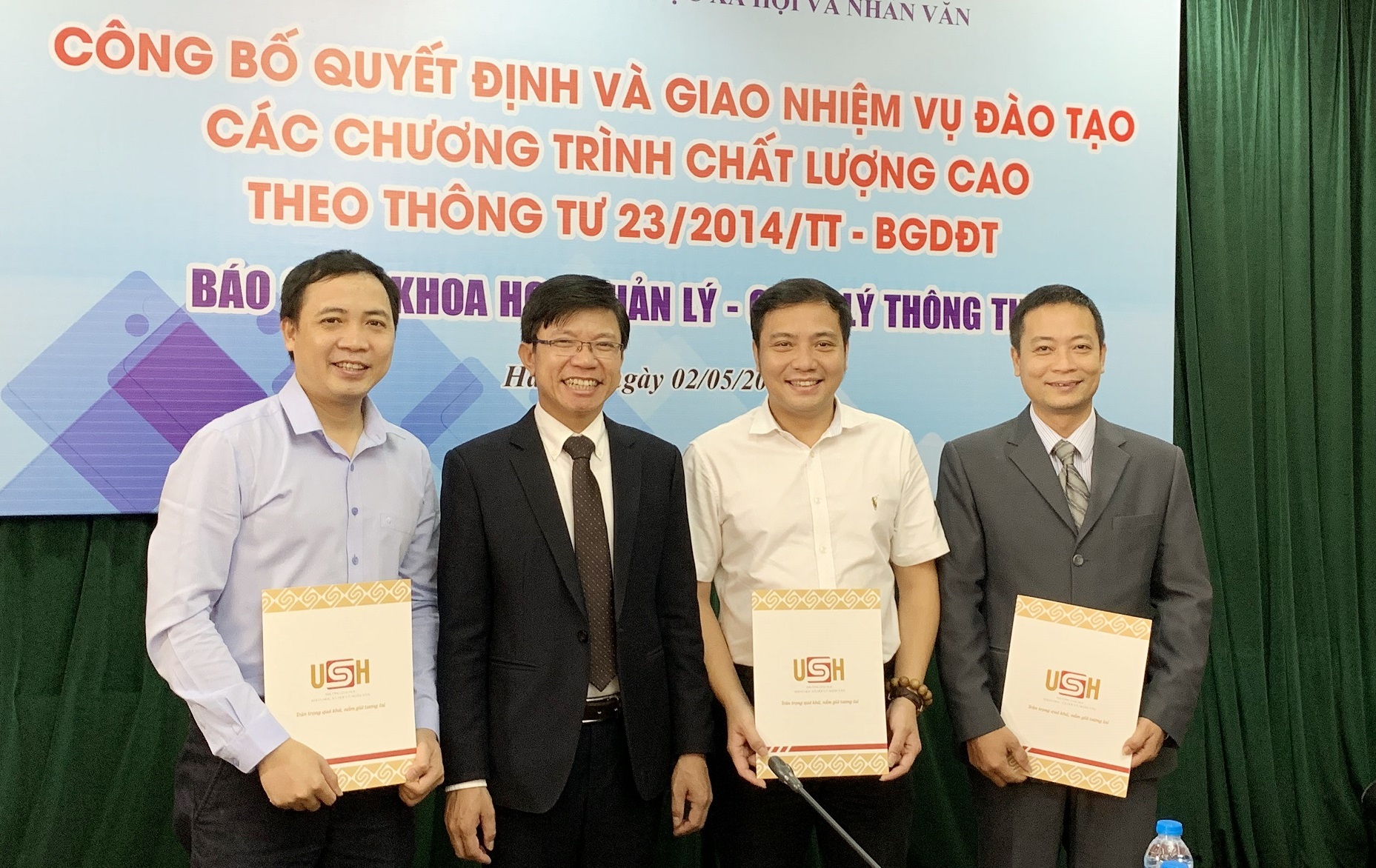
Not only giving a speech assigning tasks to the units, Associate Professor Dr. Hoang Anh Tuan also answered questions from reporters about these 03 training programs: the reason why the School chose the above 03 training programs to implement CLC training with fees according to training costs, the advantages of the training programs and the benefits for learners, the suitability of the training programs to trends and meeting social needs, the ability to find jobs and integrate internationally of students after graduation...
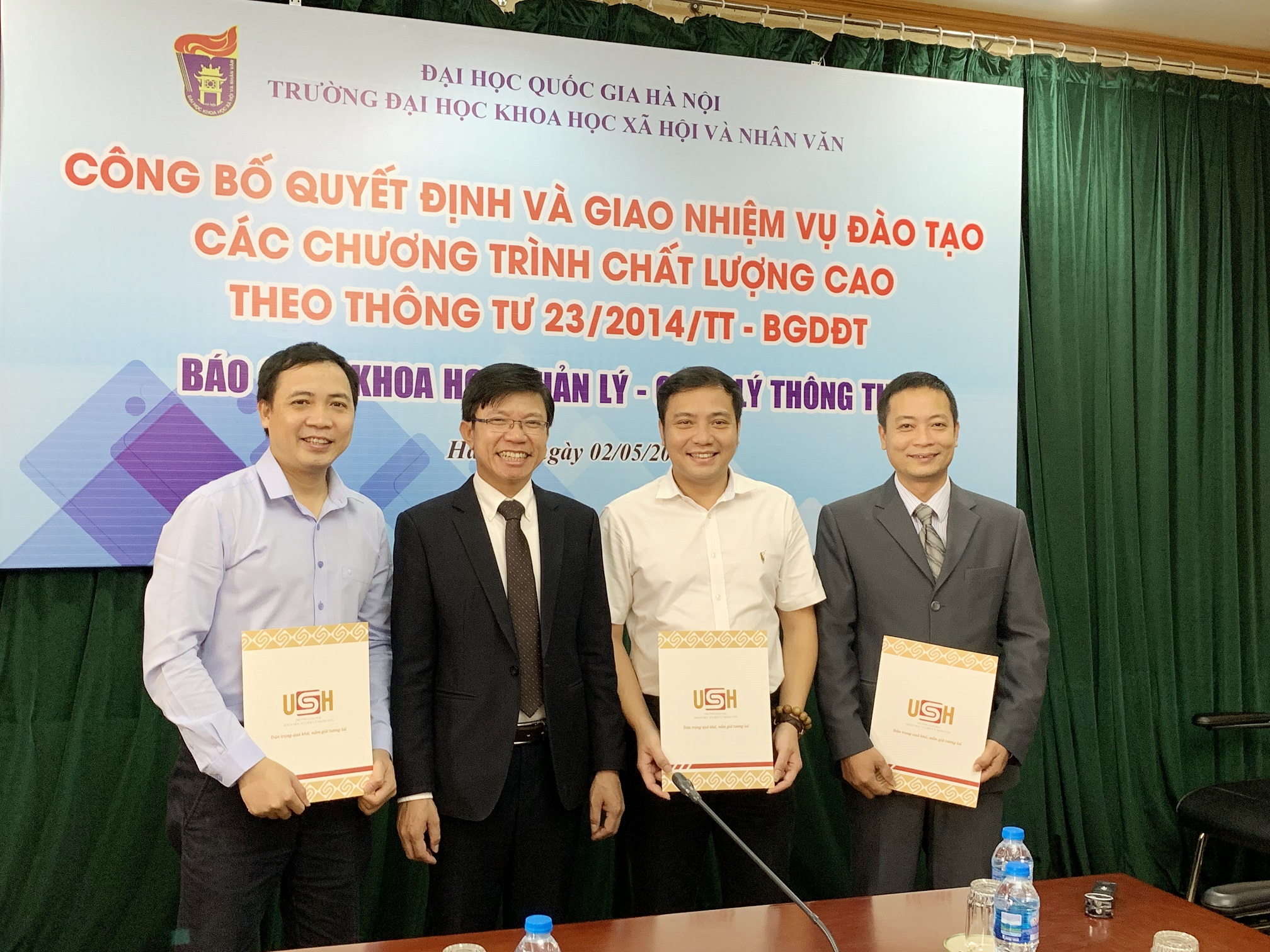
Vice Principal Hoang Anh Tuan and representatives of the leaders of the Institute of Journalism and Communication Training, Faculty of Management Science, Faculty of Information - Library at the ceremony to announce decisions and assign training tasks
“In the 4.0 era, the production of a supercomputer, an automated robot, the application of artificial intelligence Al... has become a very normal story, but for technology to serve our lives most usefully, we still need a foundation of human intellectual capacity, ethics, and emotions... Therefore, Social Sciences and Humanities always have an important and irreplaceable role in the current digital age” - Associate Professor, Dr. Hoang Anh Tuan introduced by sharing a message from the Global Higher Education Summit in Chicago in 2019.

Vice Principal Hoang Anh Tuan shared information on the implementation of enrollment and training of CLC training programs in the fields of Journalism, Management Science, and Information Management in the 2019 enrollment season.
In 2018, there were about 40,000 applications for the Social Sciences and Humanities majors of the University of Social Sciences and Humanities, VNU, reflecting the high demand of candidates who want to study Social Sciences and Humanities majors at the University. Meanwhile, the training quota for standard training programs assigned by the University every year is not much, only meeting the needs of a small number of learners. Implementing the content of Circular 23/2014-TT of the Ministry of Education and Training, the University decided to open a number of CLC training programs that charge fees according to training costs to meet the above needs.
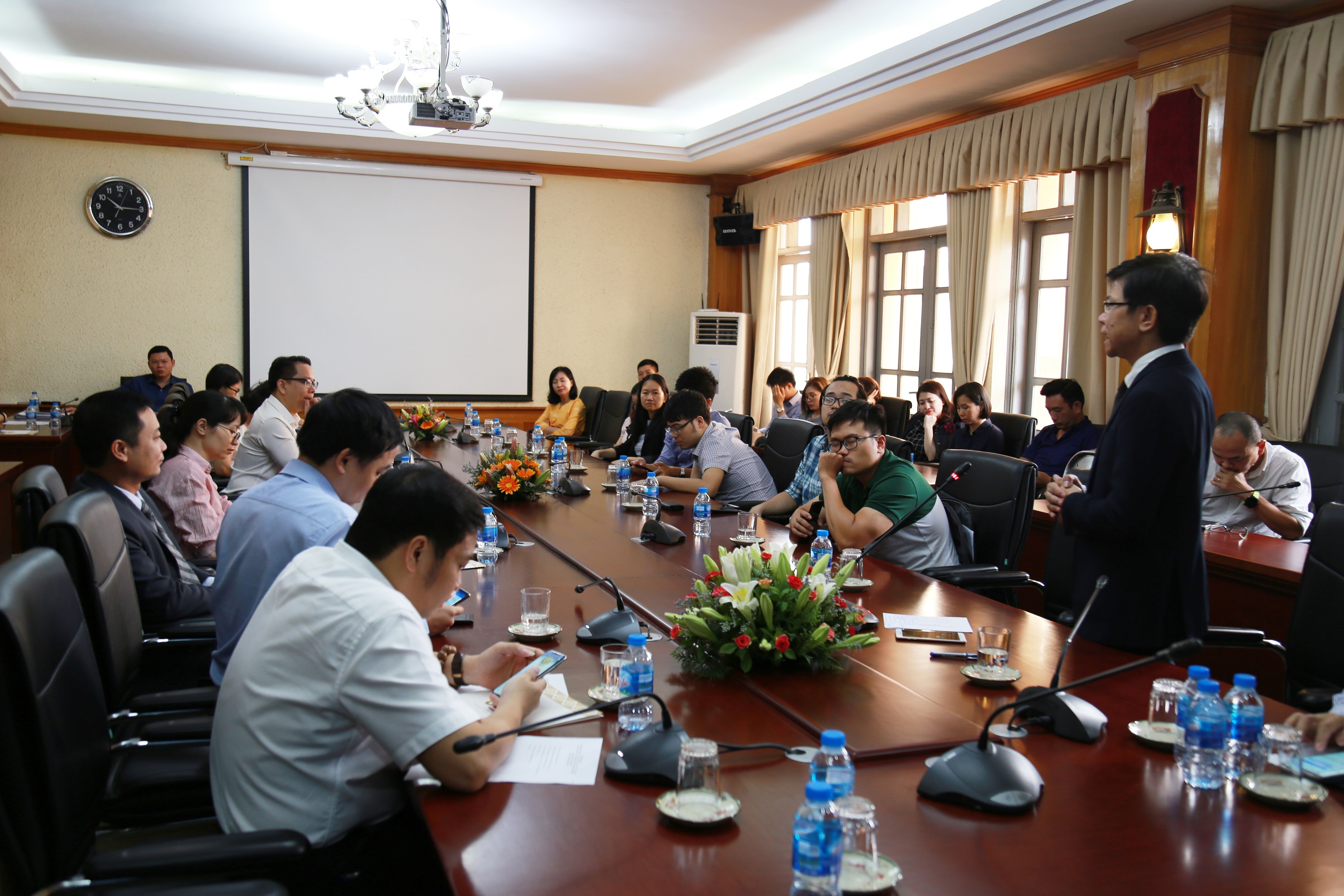
In terms of training capacity, the University of Social Sciences and Humanities is the leading training institution in Social Sciences and Humanities in Vietnam, with a 74-year training tradition since the Faculty of Letters (1945). The University's 25 undergraduate training majors cover many fields, from basic sciences such as Philosophy, Linguistics, Literature, History, Han Nom, Anthropology... to modern, highly applicable sciences such as Journalism, Oriental Studies, Management Science, Office Administration, Sociology, Social Work, International Studies... The teaching staff is of high quality with 108 professors/associate professors, accounting for 27% of the staff. 65% of lecturers have a PhD degree. The University's students always have a high employment rate after graduation, up to 90-93% after 6-12 months. The University has open relationships with many businesses and employers at home and abroad.
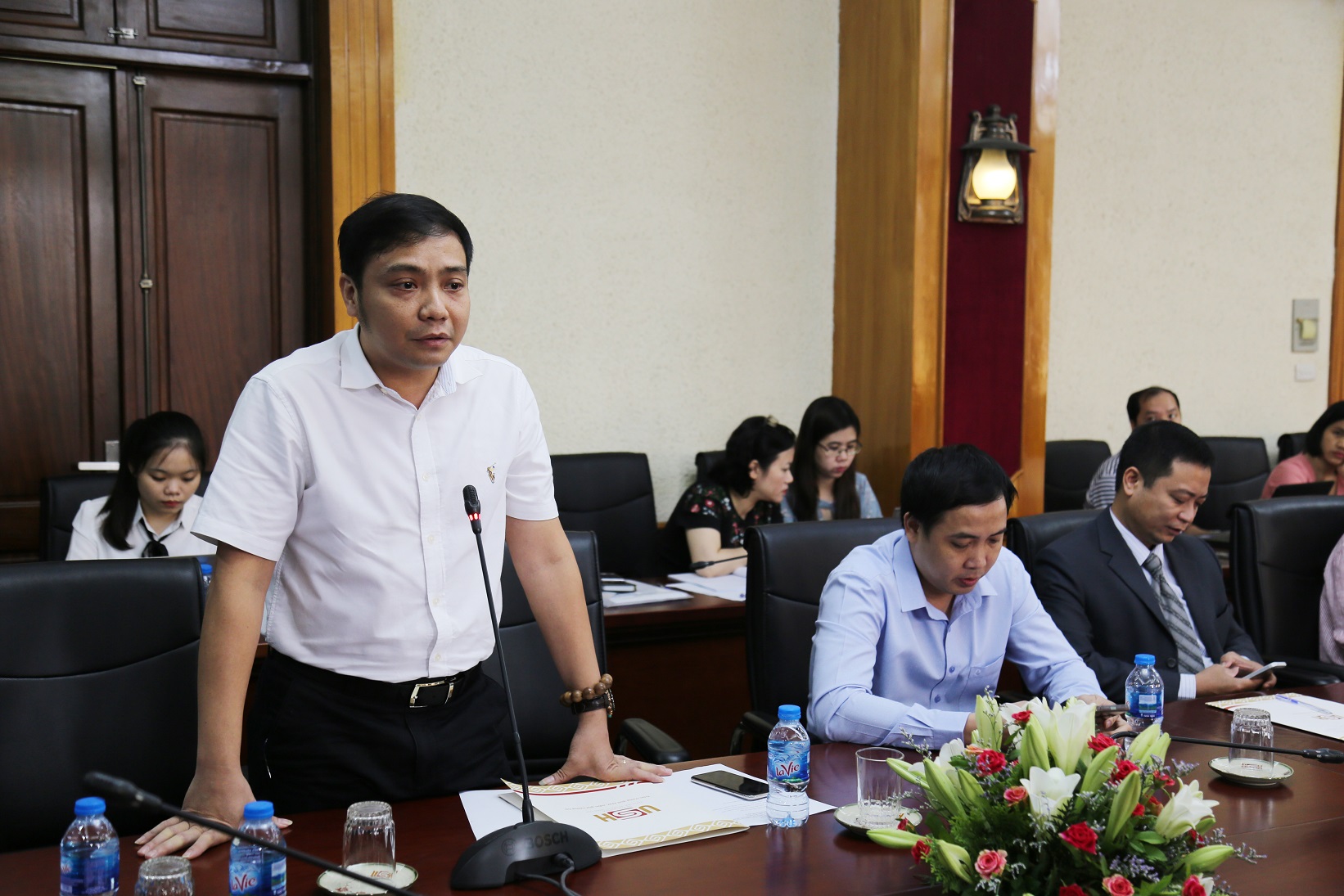
Associate Professor, Dr. Dao Thanh Truong (Head of Faculty of Management Science) informs about the CLC training program in Management Science
Journalism, Management Science, and Information Management are all modern majors, with great social demand, good job prospects in the labor market, in line with the general development trend of professions in Vietnam and in the world. These CLC training programs will be recruited and organized in parallel with the standard training program. The Institute of Journalism and Communication Training, Management Science, and the Faculty of Information and Library Science are all units with training traditions and training capacity recognized by society.
By studying these training programs, students will enjoy learning conditions and advantages such as:
About learning conditions:CLC students are given priority to use advanced facilities such as: small-scale classrooms (25-30 students/class); friendly, modern learning environment; classrooms that meet multimedia teaching requirements, pre-installed with modern teaching equipment...
About training organization:More investment in foreign languages to enhance the ability to integrate internationally and participate in the regional labor market; taught/instructed by a team of prestigious domestic and foreign lecturers; 20-30% of subjects in the program are taught in foreign languages and taught by foreign lecturers; receive academic advice and regular support from a team of professional academic advisors; have the opportunity to do internships and practical training at home and abroad...
Some other notable benefits:Encouraged to participate in scientific research and receive financial support according to school regulations; facilitated to participate in student exchange programs and international exchanges; awarded scholarships from 10% of tuition fund, for students with excellent academic achievements, scientific research and movement activities according to school regulations; given priority in job introduction at the school's partner units...
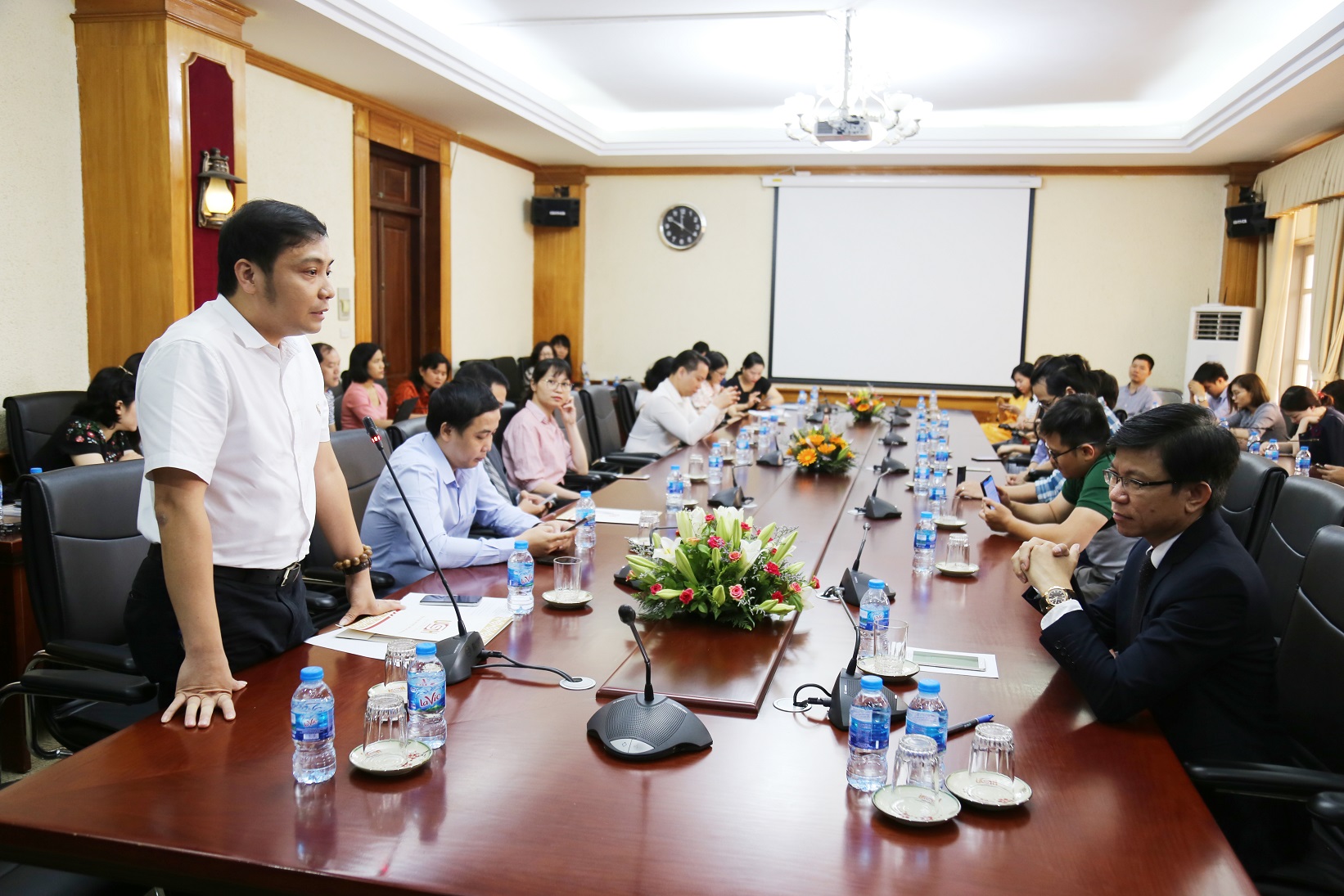
Sharing about the CLC Management Science training program, Associate Professor, Dr. Dao Thanh Truong (Head of the Management Science Department) said: The training program is built with 50% theoretical and 50% practical courses. 50% of the lecturers are experts in teaching theory and 50% are practical activists. 50% of the subjects are related to application orientation, including very new courses in Vietnam such as startup management, startup administration, applied game theory in management, innovation management... Students defend their thesis in English and do internships abroad. In particular, students will participate in a series of talk shows sharing practical stories about professional and management skills with experts from the National Assembly and leading managers and policy consultants in Vietnam.

Dr. Do Van Hung (Head of the Faculty of Information and Library) said that the Faculty will make every effort to create a brand and unique mark for the CLC Information Management Training Program.
Dr. Do Van Hung (Head of the Faculty of Information and Library) said: The CLC Information Management training program will focus on two areas: public sector information management and enterprise information management. The training program will implement a business semester with 20 credits of practical internship. Students can do internships right from the end of the first year. 30% of subjects are taught in English and graduates meet the English output standard of 6.5 IELTS. The school has signed contracts with large corporations such as Tan Hiep Phat, Viettel, Bao Ninh, Vingroup... to create internship and job opportunities for students. The program applies project-based learning and implements blended learning between classroom and online learning. Through the CLC training program, the Faculty wants to build its own brand of training quality to attract the attention of businesses and employers.
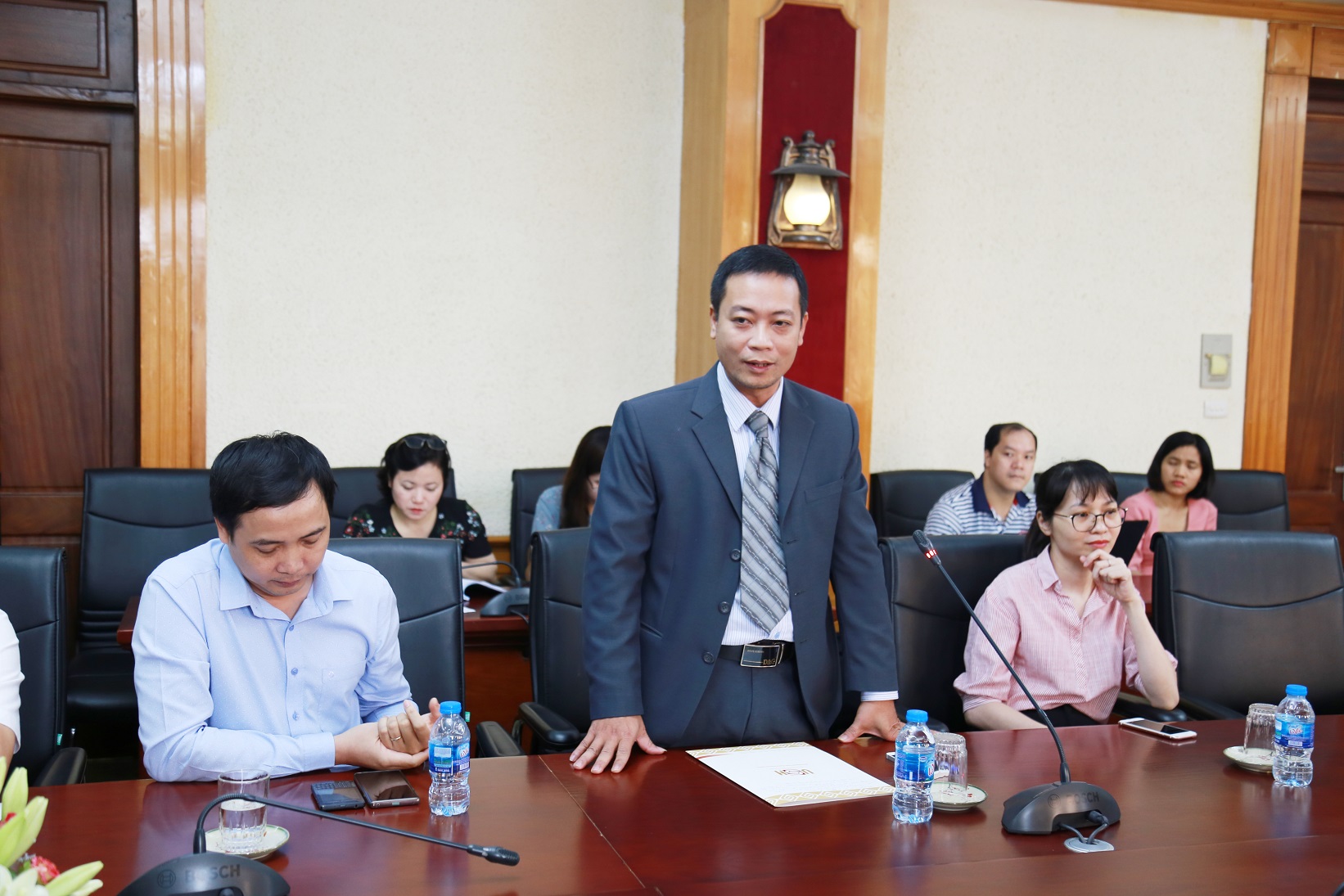
Dr. Nguyen Son Minh (Deputy Director of the Institute of Journalism and Communication)
Dr. Nguyen Son Minh (Deputy Director of the Institute of Journalism and Communication) shared about the strengths of the CLC Journalism training program: The program is built on the basis of approaching the world's advanced training programs... The program focuses on the main points: training the ability to work in many types of journalism, creating competitiveness for learners; initially training communication management skills and responding to media crises... Students are trained with a good foundation in social sciences and humanities, plus access to specialized knowledge and skills of many different types of journalism. After graduation, based on that knowledge base, students can choose and focus on developing their careers in a certain type/field of journalism.
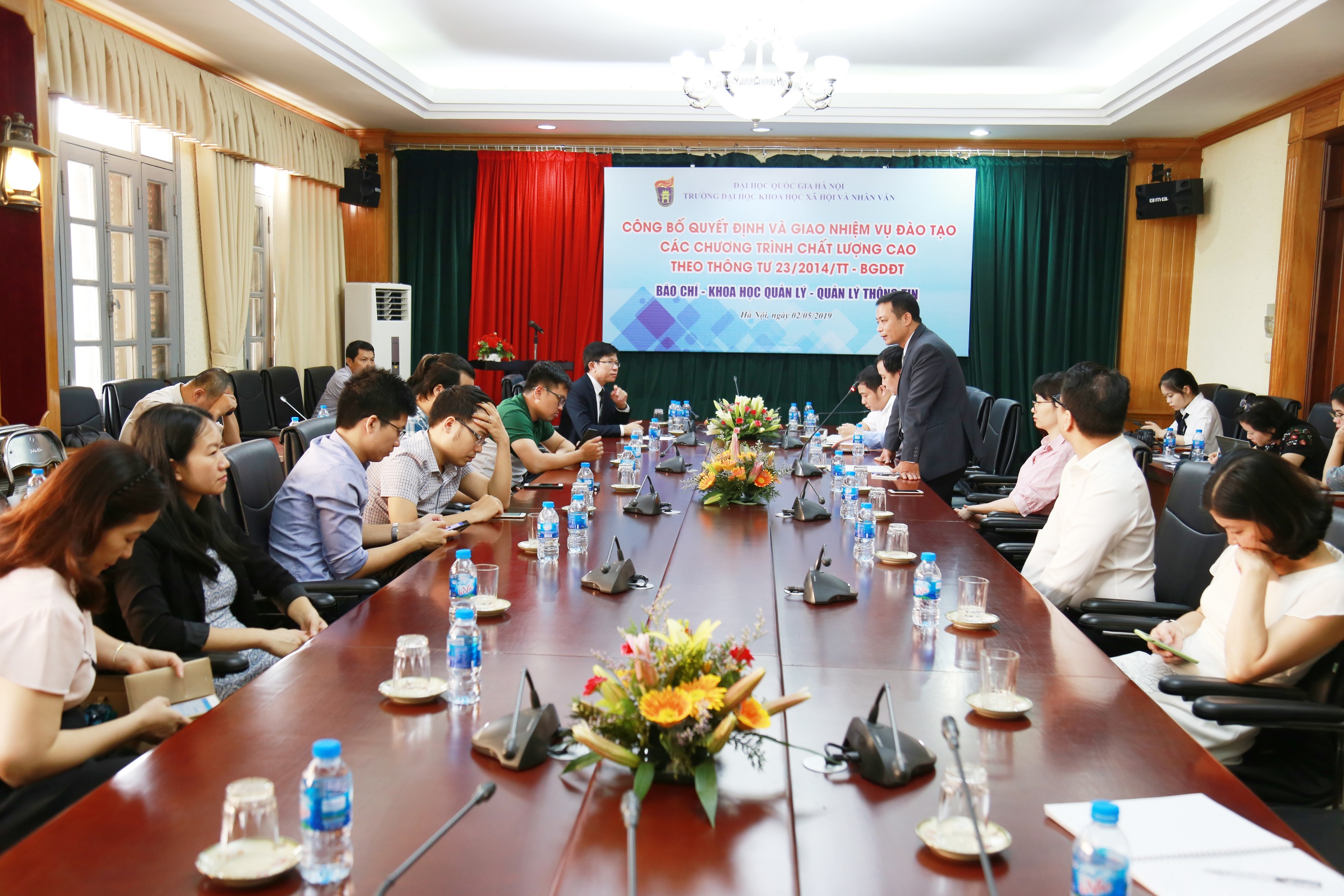
In addition, the Institute will focus on improving students' foreign language skills with over 20% of subjects taught in English, thereby expanding their ability to adapt and work in regional and international journalism and media environments. In the future, the Institute will recognize and transfer credits for training in Journalism with ASEAN universities.
Author:Thanh Ha
Newer news
Older news